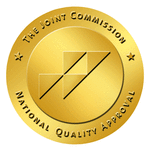
Nutritious, caloric-ally appropriate meals should be part of the recovery regimen, in order to manage risk factors related to relapse. How can you balance problems with mood, the central nervous system, vital organs, or sleep? We review here. Then, we invite your questions about diets for addiction recovery at the end.
A Healthy Diet In Recovery Restores Mind And Body
Just as individuals with cardiac disease or diabetes have specific risk factors that can be addressed by diet, individuals with substance abuse issues also display particular symptoms that can be addressed by sound nutrition in recovery. Significant deficiencies in vitamins and minerals, which often come as a result of substance abuse, can eventually damage vital organs, as well as the immune and nervous systems. By analyzing and boosting missing nutrients, the physical body begins to mend. Unstable moods and memory loss can also be repaired with the help of a solid plan for nutrition in recovery. Poor sleeping patterns, also typical with substance abuse, may also be addressed through diet.
Good nutrition in recovery has many benefits. The right foods help cleanse the body. Stress is handled better and mood swings diminish. The body gains strength which makes it easier to carry out more difficult physical and mental tasks. The body and mind heal and an overall healthier lifestyle replaces the poor eating habits typical of those in the throes of substance abuse. Changing one’s eating habits takes time, but continual practice will eventually lead to a life focused on healthy choices. Additionally, eating right can be part of plan to prevent addiction relapse through self-care.
Consider, too, that diet is a concern not only in the initial stages of recovery, it’s important to long-term maintenance of abstinence from harmful substances. As recent medical research points out, the possibility of relapse may be diminished when an individual is engaged in balanced eating habits that include necessary nutrients. Consulting a health care professional such as a dietitian will help determine specifically what diet is best for an individual’s particular risks, needs and predilections throughout a lifetime of continuous abstinence.
What Is Sound Nutrition In Recovery?
Most nutrition programs for those in recovery consist of all the elements in any balanced diet. This will include plenty of vegetables and fruits, grains, low fat meat or alternative proteins. You’ll also want to limit processed foods and watch your salt intake. There is also a way to target what your body really needs; a thorough analysis of someone’s vitamin and mineral levels help determine where to boost certain food nutrients or supply supplements. Experts also point out that the way a body and mind are affected by substance abuse depends largely on the substance itself. It’s important to determine exactly what areas of a diet require a boost.
While an individual plan can benefit you most, there are a few general rules that apply when it comes to nutrition in recovery. These include the following:
1. Consistency. Mealtimes should be consistent, eaten at a regular time each day. This is not only good for the body, it helps build discipline into a daily routine.
2. Stable blood-sugar levels. Healthy snacks can help stabilize blood sugar, which is critical to a stable mood. A boiled egg, nuts, raw vegetables, or any other low-calorie, non-sugar snack can take care of the mood dips that might come between meals. Eating light, more frequent meals can also help.
3. Avoid peaks in energy. Caffeine and sugar should either be eliminated or drastically reduced, as they can cause mood fluctuations.
4. Try new foods. Recovering individuals should eat healthy foods they like and experiment with foods they’ve never tried or have never liked before, new healthy favorites might be discovered that way.
5. Break out of unhealthy patterns. Bad eating habits can be just as hard to give up as drugs or alcohol, so it may be smart to move gradually to changes in diet that will promote long-term recovery. The best relapse prevention strategies include slow but steady progress.
Make Nutrition In Recovery A Priority
Just as with any new initiative, persistence and commitment will result in positive results. So while you may not notice any major changes in as little as a week, after a month or two of healthy eating…you will probably feel totally different! And, if you need help, we suggest that you seek the professional expertise of a licensed nutritionist, life coach, or a licensed clinical psychologist. These health professionals can help you set and achieve your goals in a healthy, positive way.
In fact, we invite you to share your tips or experiences about healthy eating in addiction recovery below. We try to respond to all legitimate comments or questions with a personal and prompt reply.

 RSS Feed
RSS Feed
